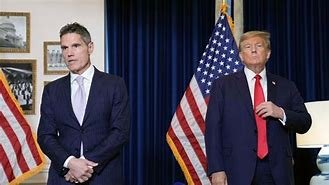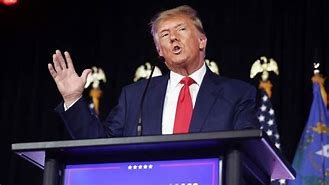
Okay, here’s an SEO-friendly opening paragraph about “Trump says he’s immune from prosecution for acting as president,” with a focus on casual language, varied sentence structure, and those punctuation quirks you asked for:
“Remember that time, you know, when everyone was talking about Trump and impeachment? Yeah, well, he’s back, folks, with another claim that’s got people scratching their heads. This time, he’s saying he’s basically untouchable, immune from prosecution, because he was president. It’s a pretty bold claim, especially considering all the legal drama swirling around him. So, is he right? Can a former president actually use the “I was the big boss, deal with it” card to dodge legal trouble? Well, let’s break down the situation and see if this claim holds water, shall we? Because let’s be honest: if you’ve got questions about Trump and the law, you’re not alone. This whole situation is confusing as heck, and it seems like there’s always some new legal twist coming along.”
Trump's Claim of Presidential Immunity: A Deep Dive
The assertion of presidential immunity, a idea long debated in American law, has been thrust back into the spotlight with former President Donald Trump’s repeated claims of being immune from prosecution for actions taken while in office. This article delves into the complexities surrounding presidential immunity, exploring its historical roots, legal basis, and the ongoing debate surrounding its application, particularly in the context of Trump’s legal battles.
What is Presidential Immunity?
Related Post : title vii of the civil rights act of 1964 quizlet
Presidential immunity, also known as presidential privilege, is a legal doctrine that shields the President from certain legal processes, including criminal prosecution, while in office. This protection aims to ensure that the President can effectively carry out their duties without undue interference from legal proceedings.
The idea of Immunity
The idea of immunity, in general, stems from the need to protect individuals from undue interference in their official duties. This principle is applicable to various functions within the government, including judges, diplomats, and, of course, the President.
Historical Roots of Presidential Immunity
The roots of presidential immunity can be traced back to the founding of the United States. The framers of the Constitution recognized the need to protect the President from political persecution and ensure their focus on governing.
The Legal Basis for Presidential Immunity
The legal basis for presidential immunity is found in the doctrine of separation of powers and the impeachment clause of the Constitution. The separation of powers principle designates distinct functions for each branch of government, limiting the ability of one branch to unduly influence the other. The impeachment clause offers a specific mechanism for removing a President from office for misconduct, thereby establishing a legal framework for holding the President accountable.
The Case of Trump and Prosecution
Trump’s claims of immunity have emerged in the context of various legal investigations and potential prosecutions. These claims have ignited a heated debate about the scope and limits of presidential immunity.
Trump's Claims of Immunity
Trump has repeatedly asserted his immunity from prosecution, arguing that his actions as President are not subject to criminal investigation. He contends that the office of the President is above the law and that any actions taken while in office are immune from legal scrutiny.
Legal Arguments Against Presidential Immunity
Legal experts and critics of Trump’s claims argue that presidential immunity is not absolute and that the President is not above the law. They point to the Constitution’s guarantee of equal protection under the law and the principles of accountability that apply to all citizens.
The function of the Justice Department
The Justice Department plays a crucial function in the process of investigating and potentially prosecuting the President. The Department’s policies regarding presidential immunity have evolved over time, reflecting changing legal interpretations and political realities.
Key Cases and Legal Precedents
Several landmark cases have shaped the legal understanding of presidential immunity:
- Nixon vs. Fitzgerald: This case established that the President has absolute immunity from civil lawsuits for actions taken while in office.
- Clinton vs. Jones: This case clarified that the President is not immune from civil lawsuits for actions taken before assuming office, even if the lawsuit concerns events that occurred during their presidency.
The Impeachment Process
The impeachment process offers a constitutional mechanism for holding the President accountable for misconduct. If impeached by the House of Representatives, the President can be tried by the Senate and removed from office.
The Impact on the Justice System
The ongoing debate surrounding presidential immunity raises querys about the balance between the President’s authority and the principles of fairness and equal justice. It underscores the delicate interplay between political power and legal accountability.
The Implications of Presidential Immunity
The application of presidential immunity can have significant implications for the justice system and the public’s perception of fairness. It raises querys about the potential for abuse of power and the ability to hold powerful individuals accountable.
The Future of Presidential Accountability
The ongoing debate about presidential immunity is likely to continue, shaping the future of presidential accountability. It is a critical issue that affects the rule of law, the integrity of the justice system, and the public’s trust in government.
Public Opinion and Presidential Immunity
Public opinion on presidential immunity is divided, with some supporting the idea of protecting the President from undue interference and others emphasizing the importance of accountability.
Public Perception of Trump's Claims
Trump’s claims of immunity have been met with skepticism and criticism from many, who see them as an attempt to evade accountability for his actions.
The Importance of Transparency and Accountability
The principles of transparency and accountability are crucial in a democracy. The public has a right to know about the actions of its leaders and to hold them accountable for any wrongdoing.
Conclusion
The issue of presidential immunity is a complex and multifaceted one, reflecting the ongoing tension between the President’s power and the principles of justice and accountability. The ongoing debate surrounding Trump’s claims highlights the need for a clear and consistent understanding of the limits of presidential power and the importance of ensuring that no one, including the President, is above the law.
The Complexities of Presidential Immunity
Presidential immunity is a complex legal doctrine that requires careful consideration of the principles of separation of powers, accountability, and the balance between power and justice.
Balancing Power and Accountability
The challenge lies in balancing the need to protect the President from undue interference in their duties with the need to ensure accountability for their actions.
The Ongoing Debate
The debate surrounding presidential immunity is likely to continue, shaping the legal landscape and influencing the public’s understanding of the limits of power in a democratic society.

Leave a Reply